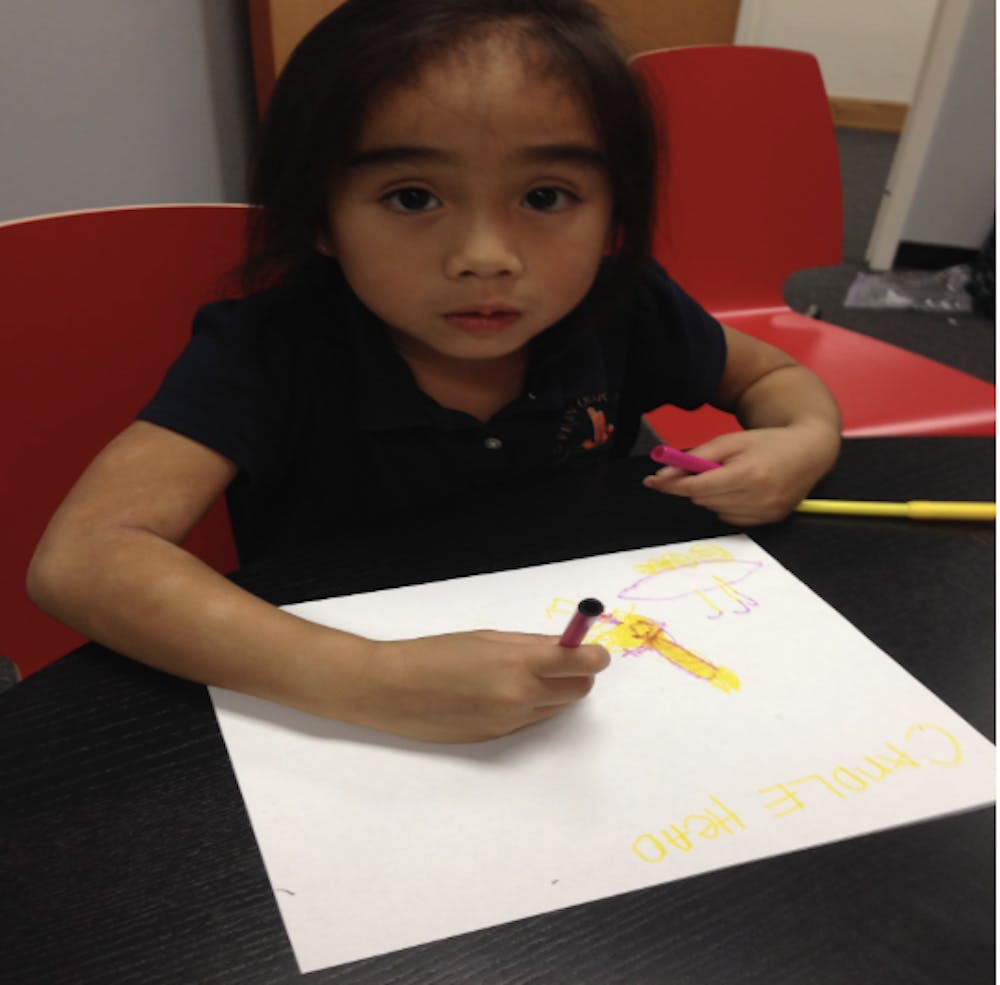
A six-year-old girl slouches on her wooden chair. Standing barely 4 feet tall, that damn chair must’ve been bigger than herself. Her first-grade workbook is opened in front of her, with a pencil lying beside it. She sees her classmates quietly reading and writing while listening to the random classical music the teacher left playing from her Pandora playlist.
But what about her?
She just sits there, eyes on the gray page. She can barely make out a word on that dull piece of paper. The directions don’t even help. They’re just a group of words put together, ending with a period. Oh, right! A sentence.
So, she just sits there. Watching as her little friends work around her, like a film projected right in front of her. Her mouth is so wide open a fly could’ve flown in there.
Three years later, the girl is now nine years old. It’s a rainy day in fall. Recess would be held in the classroom, with plenty of games to play.
“First finish your classwork and then you can play,” thought the girl. “Write the paragraph. Write the paragraph! What is a paragraph? What are the questions on the board even saying!?”
The period is over. Recess begins. All her peers scatter among the classroom, like little cockroaches. Grasping her pencil, the girl can’t even think of a response to write.
She just sits there, watching her friends laugh and reward themselves with games and social hour as she struggles to write about a book she barely finished reading during that period.
Oh, and who might that girl be? Well, I’m glad you asked. That girl was me in the past.
Or is she still me?
Of all the thoughts that’ve raced in my mind, I’ve worried: What if I become that same six-year-old girl who couldn’t finish any of her work on time?
Nowadays, the discussion sections of my classes consist of group work. Every week, I’m assigned to complete a task along with a few of my peers. I stare at the sheet of math problems, at the questions on the PDF. After a while, I still remain on the first few sets of problems. Have I not recovered from my senioritis? Why am I forgetting how to solve these problems now, when I have roughly ten minutes to discuss with my group? My group is finished with the problems and ready to share answers, but I haven’t read the entire sheet. What if I’m holding them all back?
It almost feels like I’m running against my group. I’m running against time. My group and time are reaching the finish line, while I haven’t ran a mile.
“Wait for me!” I exclaim, trying to catch my breath.
This phenomenon of losing track of time was never new to me. It’s rather a common occurrence that pops up every now and then. I had so many thoughts spinning in my head that I can’t even put them into words. Or numbers, in some cases. As I slouch on my chair looking at the list of questions, a sense of strange nothingness comes about me…
It’s as though my thoughts have taken control of me, rocking me back and forth in a push-and-pull motion. After thinking hard for a few minutes, my entire head goes blank. I can’t do anything but just sit there.
If I could describe all that I feel in one word, it would be “existential.” The subtle realization that I’m alive and I’m present in the classroom. The realization that my name is Kristin and I am a college student attending Hopkins. But what can I do to make myself present in that moment? How could I ever contribute to the moment when I’m not sure if I know the question well? People will look at me weird.
Although these thoughts flood my mind, and I feel that there is nothing I can do, I choose to reach out whenever I can. Asking my peers questions on how they got the answer on problem number one allows me to not only better comprehend it, but to have a brief connection with them.
Even if it has been a frustrating dozen years grappling with getting classwork done, it’s not a race against time or my peers — it’s a race against myself. Watching my classmates finish work way ahead of me has led me to compare myself to them. I’d believe that I could never be as intelligent, productive or astute as they are. My anger toward not completing work at a given time is another layer over self-esteem that lingers at the top of my mind. I was always ashamed about my slowness to complete tasks or understand directions.
While there is no single solution to my gradual processing speed, there are support systems willing to listen. Whether it’s the peer listeners at A Place to Talk, the Student Disability Services or my professors who have been happy to chat for half an hour, networks of people are willing to help out. All you have to do is stop by and speak up.
As I reminisce, there’s no denying the fact that I was once that girl who couldn’t write a sentence. It took effort and self-confidence to write words that would become sentences among sentences and then pages among pages, like this very article. Given only ten days to write an article for Voices, I compromised with time to have patience and forgive myself a little more each day. Any task can be intimidating, but I’m reminded that it’s not about whether you’ve completed your work before everyone else. It’s about what you’ve experienced from doing that work.
Kristin Milburn is a freshman from Laurel, MD majoring in Public Health Studies and Classics.





